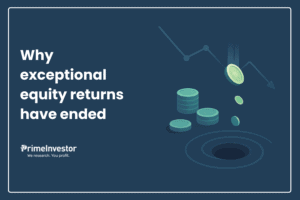The development
Franklin India AMC has announced that it is winding up 6 of its schemes – Franklin India Ultra Short Bond, Franklin India Short Term Income, Franklin India Dynamic Accrual, Franklin India Credit Risk, Franklin India Low Duration Fund and Franklin India Income Opportunities Fund. These are some of the most popular funds managed by the AMC. No new investments or redemptions will be allowed from April 24, 2020. The fund will seek to systematically liquidate its portfolio and pay the proceeds to investors in these funds over the next few months, though the fund has not specified any timeline.
What’s the issue?

Here’s what you need to understand on why this has happened.
- No, this is not a case of Franklin funds facing credit defaults on the bonds they own. There has been a severe redemption pressure on the fund and quite a few other fund houses as well in the month of March 2020. Lack of liquidity in the debt market, especially for lower rated bonds following the Covid pandemic, has made it difficult for the fund house to sell its holdings at a price that will not hurt the portfolio.
- The challenge for FT was compoundedby two factors. One, usual March-end pullouts apart, the fund had been facing redemption pressure post January due to the hits it had to take on downgraded bonds of Vodafone and Yes Bank. The second and more important reason was that FT funds held a high proportion of lower credit-rated corporate bonds which are typically illiquid. This means when there is redemption pressure, it is difficult to immediately sell such bonds at a fair price.
- The affected FT debt funds resorted to borrowings within SEBI allowed limits to meet redemption demands in the last two months but continued to see unabated pullouts. But borrowing cannot be an unlimited option as SEBI specifies a cap and borrowing costs eat into a fund’s NAV.
- If the fund house continued to sell its illiquid lower-rated bonds to pay out redemption demands, it could result in severe NAV erosion as the sales would have to happen at prices that would cause further losses to existing investors.
- The fund house could have curtailed redemptions alone, until the liquidity situation in the debt market improved.
- However, SEBI regulations permit only 10 days of suspension by an open-end fund in a 90-day period and require redemption upto Rs 2 lakh per investor to be honoured. This option was not considered viable by FT as the redemptions would still force it to sell illiquid papers at deep discount.
What about other funds from the AMC?
The other Franklin India debt funds that are not wound up are funds that have better credit quality and have better liquidity. The fact that they didn’t shut down these funds suggests that it may have sufficient liquid instruments in those schemes, to meet redemptions if any.
What does winding up mean?
- Winding up means that the fund will not accept any kind of transactions – investments or redemptions from today. It will be up to the fund to pay you back.
- It will try to sell the existing papers it holds in a phased manner either in the market when liquidity improves or wait until maturity and get the money back.
- It will repay investors in phases as and when it gets money through sale or maturity.
- Interest accrued on bonds will continue to be added to the fund NAVs and daily NAVs will be declared.
Will I get back my money?
You should get back your money. But whether you will get back your money in full at today’s NAV, depends on three things:
- One, the accrual (interest income) income the fund makes over the remaining holding period
- Two, the price at which it is able to sell its bonds if it sells in the market, when the Covid pandemic situation improves and liquidity gets better.
- Third, on the bonds it doesn’t sell, the issuers repaying the full amount on maturity.
When will I start getting back the money?
There is no timeline offered by the fund. In one of its communications, it has stated “Once the market recovers from the current Covid-19 situation, early exits via sale/prepayment will be actively explored with a view to facilitate repayment prior to the maturity of the portfolio investments.”
Basically, you will get your money in full when the last bond held by each fund is sold or matures. The average maturity of these funds provide a rough indicator of the timeline by which you can expect to get back the money, whether in part or in full.
For example, funds such as the Franklin India Ultra Short Bond have a maturity of less than a year (0.62 years), while those such as Franklin India Credit Risk have an average maturity of 3 years.
What is our take on the winding up?
Under the current circumstances, the only way for FT to increase the chances of returning the money due to you without eroding your NAV drastically, was through this phased winding up. But having said this, FT has compromised retail investor interests by holding such a high proportion of lower rated bonds, known to be illiquid, in funds labelled as ‘low duration, ‘ultra-short’, ‘short duration’ etc which are preferred by risk-averse investors seeking quick liquidity.
Immediate liquidity is one of the core promises of an open end fund and FT has been forced to backtrack on it.
Any fund house that has illiquid papers in liquid, low duration or ultra short term debt funds puts its investors under risk. This is something that the regulator too needs to take a re-look at, for lower duration funds. That is why our ratings do penalise such credit holding.
Please stay tuned for the rest of this series on:
- Our approach to rating and picking fund, our rating history on these FT funds.
- Alerting you to funds that carry similar risks across AMCs.
- What this risk could mean for the broader debt market and what should you do.





32 thoughts on “Franklin funds are winding up. Will you get your money back?”
When you will start paying back investors money approx.
If you mean when FT will start paying back, there is no time line. We have explained it in the article. thanks, Vidya
What is the impact of this Franklin fiasco on the debt funds of other AMCs like HDFC Short Term debt fund? As retail investors, should we only invest in debt funds holding only AAA credit quality papers? How much of AA holding is acceptable?
Hello sir, we will be writing about this and calling out all funds with risky papers in our article on Monday April 27, 2020. It is available for subscribers. thanks, Vidya
Very nice and balanced article, Vidya. Thanks !
Just wanted to know your thoughts on whether RBI/ Govt will seriously consider offering a line of credit to FT for it’s investors (like it had done in 2008 for the Mutual Fund industry), keeping in view the current extraordinary pandemic situation . Thx
R Uppal
Hello Sir, Thanks!
I am not sure if that will solve the problem. GEtting credit is one but you can’t indefinitely borrow if redemption continues. It will hurt the portfolio since it has to be serviced from it. I would think RBI’s direct intervention (than through banks) in the bond market would help generate liquidity in segments that need it more. Today there is liquidity that is not channelised into the right places. Thanks, Vidya
If I remember correctly, FT UST was rated 4.5 by Prime Investor not too far back. If this is so, can you explain why it was not rated lower since IT WAS KNOWN WELL IN ADVANCE that most of bond quality was of questionable quality. Does it also not hurt PI’s credibility ?
Manish
Sir, please read this article of today https://www.primeinvestor.in/how-primeinvestor-identifies-risk-in-debt-funds/ You will see how our ratings changed and how other rating agencies are. Please read it fully.
We have explained various things.
1. One how we called out on FT and other vodafone exposed funds in Nov 2019 and then in Jan 2020: https://www.primeinvestor.in/vodafones-impact-on-your-debt-funds-heres-what-you-should-do/
https://www.primeinvestor.in/vodafones-impact-on-your-debt-funds-what-now/
2. On when oru ratings changed in FT (before this event): https://www.primeinvestor.in/gainers-and-losers-in-prime-ratings/
3. On how we again called out in our Prime Funds review on April 17 – https://www.primeinvestor.in/quarterly-review-prime-funds-april-2020/
4. And today we have explained how ratings can mask risk and how we identify it: https://www.primeinvestor.in/how-primeinvestor-identifies-risk-in-debt-funds/
I call this credibility building, not otherwise 🙂 Please see this too 🙂 https://twitter.com/vishnu_tsin/status/1253646544324173824
Vidya
Hi, Two questions 1) You were recommending Franklin Ultra short term fund till recently with a qualifier that one should hold it for more than 3 yrs or so; Are you going to look at how robust your process is in evaluating the funds after this Franklin Fiasco? 2) How do you rate “Franklin India savings Fund” now in light of these developments, its currently in your recommended portfolios.
Hello Sir, It was not 3 years. it was in over 5 years in our list. But we had said pare exposure way back in November and January and kept repeating those articles and said they are not meant for less than 5 years. Ratings mask risks. That is why in our review tool we clearly specify time frame for this fund and also said keep to 10%. And then in mid April when our ratings on the fund was slashed, we removed from our list entirely. It was because our process was robust we identified ahead. Please read this article: https://www.primeinvestor.in/how-primeinvestor-identifies-risk-in-debt-funds/
For the second part of the question, and for all future questions, as a subscriber please write to [email protected].
thanks, Vidya
Hello Vidya,
Thanks for the timely article. I have a question not directly related to this article. Suppose that I have uploaded by funds in the review tool and at some point in time you suggest selling into this fund. Will i get a notification from you about this change in my portfolio that i have uploaded in the website or I have keep looking every now and then to see the changes?
~Santosh
No it is only a review tool. Only portfolios have alerts. But whenver we make any big changes, we do write. Please see:
2. On when oru ratings changed in FT (before this event): https://www.primeinvestor.in/gainers-and-losers-in-prime-ratings/
3. On how we again called out in our Prime Funds review on April 17 – https://www.primeinvestor.in/quarterly-review-prime-funds-april-2020/
4. And today we have explained how ratings can mask risk and how we identify it: https://www.primeinvestor.in/how-primeinvestor-identifies-risk-in-debt-funds/
Changes are usually quarterly but calls to alert you are done when events occur.
And before that on the Vodafone saga In Novemeber: https://www.primeinvestor.in/vodafones-impact-on-your-debt-funds-heres-what-you-should-do/
In January: https://www.primeinvestor.in/vodafones-impact-on-your-debt-funds-what-now/
Will there be a chance on reduction in the investment value ?
Hello sir,
It’s very difficult to definitively say at this time whether there will be a lower amount realised. As explained in the article, it depends on whether the fund receives accruals on the papers it holds and the principal (i.e., there’s no default happening on interest or maturity), what price Franklin AMC manages to sell the papers at (i.e., if it has to sell at discounts). If all goes well, you may not see severe losses in your investment.
Thanks,
Bhavana
Thanks for this article, a very simple and clear write up. Looking forward to the rest of the articles on this issue.
What is your advice on FT Liquid fund?
Please check our Prime funds list or our review tool. thanks, Vidya
How the investor should account the future receipts from these funds, if there are no NAV is going to be published henceforth; and the payments will be ‘as and when received’ out of ‘interest incomes and sale of bonds’?
SIr, we have mentioned clearly NAV is going to be published. So it will be usual capital gains – like when you sell units. Vidya
Comments are closed.